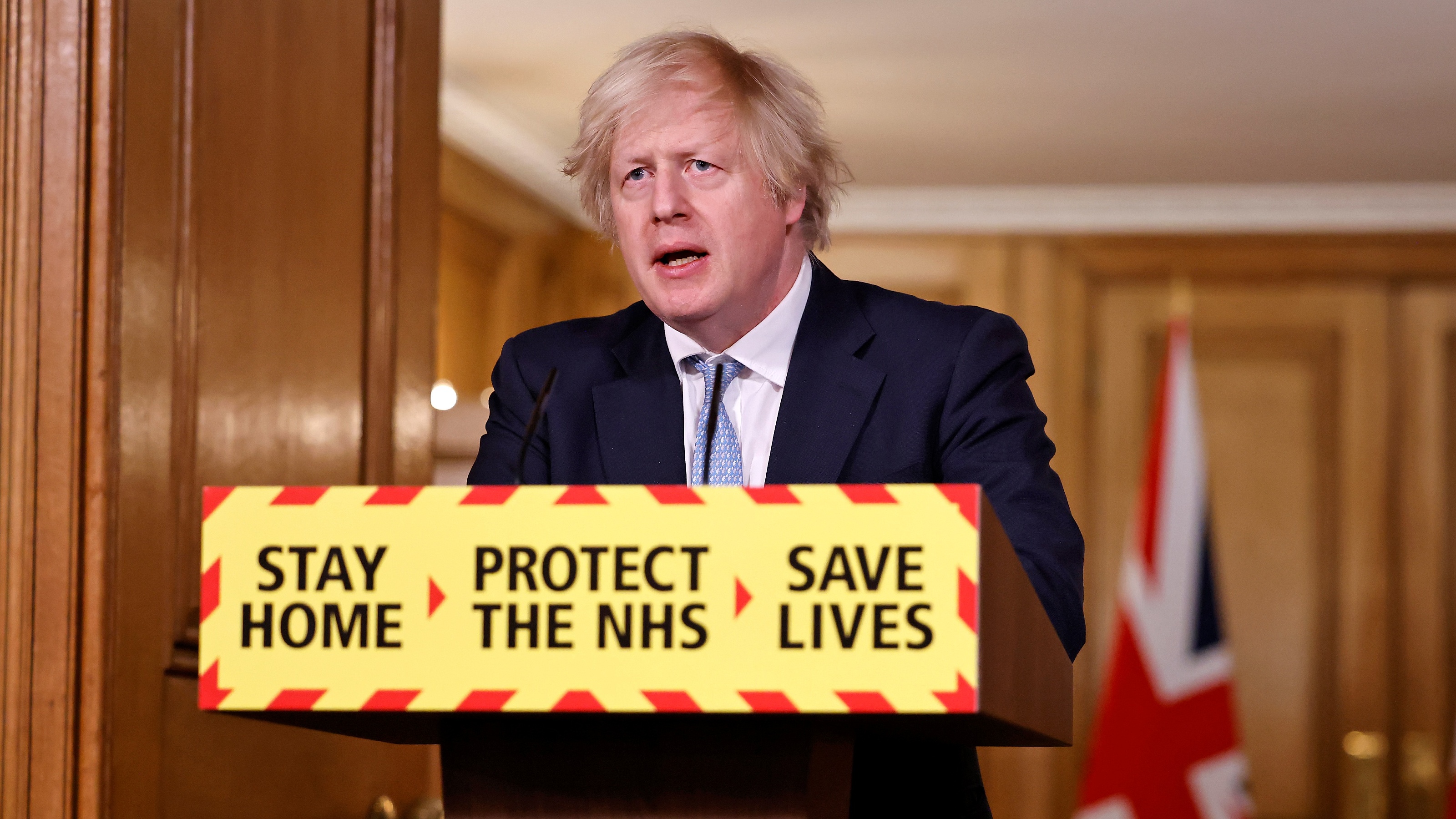Can Boris Johnson resolve the UK’s vaccine supply shortage?
Government officials keen to avoid ‘war of words’ with Indian government over delivery hold-up

A free daily email with the biggest news stories of the day – and the best features from TheWeek.com
You are now subscribed
Your newsletter sign-up was successful
The government is reportedly negotiating with an Indian pharmaceutical giant in a bid to resolve next month’s coronavirus vaccine supply issues.
NHS bosses warned earlier this week of a month-long “significant reduction” in the supply of Oxford-AstraZeneca vaccines from the end of March that is thought to be due to a hold-up of deliveries from the Serum Institute of India (SII).
Housing Secretary Robert Jenrick suggested to Sky News that the delay was down to to “lumps and bumps” in the manufacturing process, a suggestion strenuously denied by the SII, which is blaming the Indian government.
The Week
Escape your echo chamber. Get the facts behind the news, plus analysis from multiple perspectives.

Sign up for The Week's Free Newsletters
From our morning news briefing to a weekly Good News Newsletter, get the best of The Week delivered directly to your inbox.
From our morning news briefing to a weekly Good News Newsletter, get the best of The Week delivered directly to your inbox.
But the Daily Mail says Downing Street has entered into “secret talks” with officials in Delhi seeking a swift resolution - and delivery of the five million outstanding doses.
‘Treading carefully’
Boris Johnson is being “strikingly adamant” in his attempt to avoid pointing the finger at the Indian government for the delay, despite AstraZeneca “explicitly blaming the Indian authorities” for a temporary stoppage of vaccine exports, Politico’s London Playbook reports.
Appearing at the daily Covid press briefing yesterday, the prime minister said the vaccine doses had been held up for “various technical reasons”, but insisted he was hopeful the millions of delayed vaccine doses would arrive by the end of the month.
A free daily email with the biggest news stories of the day – and the best features from TheWeek.com
Johnson made a point of “heaping praise” on the SII, says The Times, with ministers “hoping that diplomacy is more likely to produce results than a war of words”.
As Politico’s Playbook notes, Johnson is “treading very carefully” ahead of a scheduled visit next month to India, with which Downing Street is hoping to develop closer trading ties as part of plans for the UK’s post-Brexit future.
The PM’s stance on the vaccine delays are “quite a contrast from the full-blown war of words” that his government is currently waging with the EU, the news site adds. Just days ago, Foreign Secretary Dominic Raab likened the EU to a dictatorship over threats to ban jab exports to the UK.
‘Nothing to do with SII’
The Times reports that the government is liaising with the Indian pharmaceutical giant in a bid to resolve the supply issues, while the Daily Mail says Downing Street has entered into “secret talks” with officials in Delhi.
Housing Secretary Robert Jenrick suggested to Sky News that the held-up was down to to “lumps and bumps” in the manufacturing process - a suggestion strenuously denied by the SII, which is blaming the Indian government.
The company’s CEO, Adar Poonawalla, told The Telegraph: “It is solely dependent on India and it has nothing to do with the SII. It is to do with the Indian government allowing more doses to the UK.”
Poonawalla added that “there was never a commitment to supplying doses to the UK in any stipulated time”, only an offer of help to produce and supply the Oxford-AstraZeneca vaccine.
He has previously warned that global vaccine exports from the SII could be disrupted by the pharma’s domestic commitments in India.
In a tweet last month, Poonawalla pleaded for foreign government’s “patience” while waiting for vaccine supplies, and said the SII had been directed to “prioritise the huge needs of India”.
Sorcha Bradley is a writer at The Week and a regular on “The Week Unwrapped” podcast. She worked at The Week magazine for a year and a half before taking up her current role with the digital team, where she mostly covers UK current affairs and politics. Before joining The Week, Sorcha worked at slow-news start-up Tortoise Media. She has also written for Sky News, The Sunday Times, the London Evening Standard and Grazia magazine, among other publications. She has a master’s in newspaper journalism from City, University of London, where she specialised in political journalism.